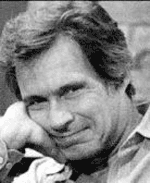
|
|
Birthdate
June 26, 1934
Country of origin
United States
Web site
Biography
Born on June 26, 1934 in Littleton, Colorado, USA.
Sometimes credited as:
David Grusin.
-----------------------------------------------------------
One of the top ten film scorers of his generation, Dave Grusin is possibly even more renowned as a jazz artist and founder of the prestige independent record company GRP.
A piano graduate of the University of Colorado in 1956, he grew up with a classical music background, his father, Henri Grusin, having been a professional violinist.
First break in show business came as musical director for Andy Williams, playing piano on a string of singles and more than a half dozen of the singer's best-selling albums, in addition to serving as leader of the Dave Grusin Orchestra on “The Andy Williams Show.”
During the period Dave Grusin also cut three headliner jazz LPs for Epic and Columbia. Developing a reputation as the man to call when a record project was struggling or required that something extra, his participation in numerous recording sessions through the following dozen years was then “limited” to being sideman, arranger, conductor and/or producer.
However, his prime focus from the late sixties onwards was on composing for the screen. Initial theatrical release was the 967 “Divorce American Style” with Debbie Reynolds and Dick Van Dyke, followed by groundbreaking ”The Graduate.” Two other noteworthy scores in the sixties were those for the literary classic “The Heart is a Lonely Hunter” and the star-studded “Candy.”
At the same time, Dave Grusin was penning scores and themes for some of the top shows in television, notably “It Takes a Thief,” “Name of the Game” and “The Bold Ones.”
In the seventies he began working with producer/engineer Larry Rosen, putting together albums for young jazz artists on Blue Note and CTI. Their company, Grusin Rosen Productions, then evolved into the record label Arista/GRP in 1978.
Dave Grusin finally returned to the limelight as a featured artist with the 1976 Sheffield Labs landmark album “Discovered Again,” followed the next year by “One of a Kind.” These included some of his own compositions, and set the tone for a jazz orientation which was strong on electronic elements complementing acoustic ones, putting him at the forefront of the fusion jazz movement.
Meanwhile, he was scoring some five pictures or more a year, and formed a working arrangement with Sydney Pollack, whereby he composed the music for such films as “Bobby Deerfield” and the thriller “Three Days of the Condor.” He was also nominated for two Academy Awards, for “ heaven Can Wait” and “The Champ” during the decade. TV themes included “Maude” and “Baretta.”
His career was sparking on all cylinders in the eighties with such Oscar-nominated scores as “On Golden Pond,” “The Fabulous Baker Boys” and “Milagro Beanfield War” (winning the award for the latter), in addition to those for “Tootsie,” “Racing With The Moon,” “The Little Drummer Girl,” “Falling in Love” and cult film “The Goonies” (plus theme for long-running hospital drama “St. Elsewhere”).
He also rode high in the jazz charts with albums “Mountain Dance,” “Out of the Shadows,” “N.Y./L.A. Dreamband,” “Night-Lines,” “Harlequin” and “Migration,” each of which featured Dave Grusin the composer as well as performer.
In 1982, along with Larry Rosen, he formed the record company GRP, and produced a score of fusion-oriented jazz albums for their stable of innovative performers. With a focus on artistic freedom, GRP was a pioneer in both digital recording and compact discs. Enjoying both artistic and financial success, GRP stood out as clear leader among contemporary jazz labels.
The nineties represented a watershed in Dave Grusin's career as a musician, with the return to acoustic piano and four critically acclaimed tribute albums to Gershwin, Ellington, Mancini and Bernstein. GRP was sold to MCA in 1991, but Dave Grusin stayed on in management, and presided over the translation and packaging of many historic jazz recordings onto compact disc.
Two more Academy Award nominations were received in the nineties, for the lush music for “Havana” and the solo piano score to “The Firm,” with the decade being rounded off by the jazz-oriented “Random Hearts.”
In the new century, with frequent colleague Lee Ritenour, he released a melodious mixture of classical, folk and jazz under the title “Two Worlds” as well as completing the score for “Dinner With Friends” among other projects.
Dave Grusin's musical career has been distinguished by a mastery over a diverse range of styles, counterbalanced by a touch at the piano which makes his keyboard signature totally unique. Integrity, exquisite taste, and impeccable musicianship have consistently been the cited keynotes of his work, which has been honored by numerous entertainment industry awards and nominations as well as doctorates from the University of Colorado and Berklee College of Music.
The emminent producer director Sydney Pollack, with whom he has collaborated on nine films, has summed it up succinctly with the words, “he can do anything, and he has done everything.”
|